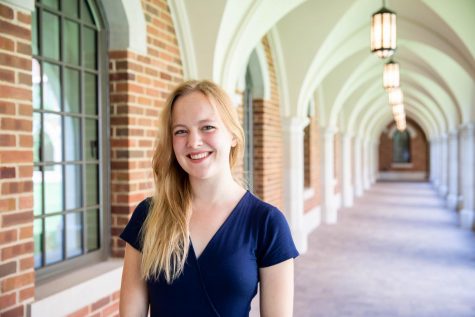This morning, the Trump administration announced that it would begin rolling back the Deferred Action for Childhood Arrivals (DACA) program, which allows undocumented immigrants brought to the US as children to obtain driver’s’ licenses, enroll in college and secure jobs legally. Under DACA, eligible undocumented immigrants are able to reside legally in the US for two years with a work permit, after which they could apply for a renewal.
The Trump decision states that as of Sept. 5, no new applicants to the program will be accepted and those currently under DACA protections will be able to continue working until their permits expire.
Shortly after the announcement, Chancellor Zeppos released a statement opposing the decision, saying that without an alternative to replace the program, ending DACA cuts short students’ potentials to impact their communities and contribute to the nation. He emphasized that Vanderbilt would continue to support all students, regardless of their immigration status or citizenship.
A message from Provost Wente and Dean Bandas echoed this sentiment and recommended that students with concerns about their citizenship status reach out the The Office of Inclusion Initiatives & Cultural Competence, which can connect students with resources as appropriate. Updates regarding resources from both the university and around Nashville can be found on the Provost’s website for international news and events.
In Nashville, groups like Conexion Americas are offering resources and support to students in need. The group will host a DACA Community Gathering on September 10th from 3pm-5pm at their offices at Casa Azafran. From 4-6pm today, there will be a march from Centennial Park to the offices of Tennessee senators Bob Corker and Lamar Alexander to urge them to defend DACA and support the DREAM Act.
Additionally, the Vanderbilt Law School’s will be hosting a panel with members of La Alianza, an organization for Hispanic law students, and the Immigration Law Society on Thursday, September 14, at 12:00 p.m. in Flynn Auditorium at the Law School.
The Trump administration defended the ending of the program as a way to undo what was seen by them as a circumventing of law by the previous administration’s executive branch. The future of the program will be determined over the next six months by Congress. Currently, there are four pieces of legislation that could serve to fill the gap left by DACA: The DREAM Act of 2017, the BRIDGE Act, the RAC Act and the American Hope Act of 2017. Vanderbilt officials said they would support the swift implementation of legislation that protects undocumented students.




